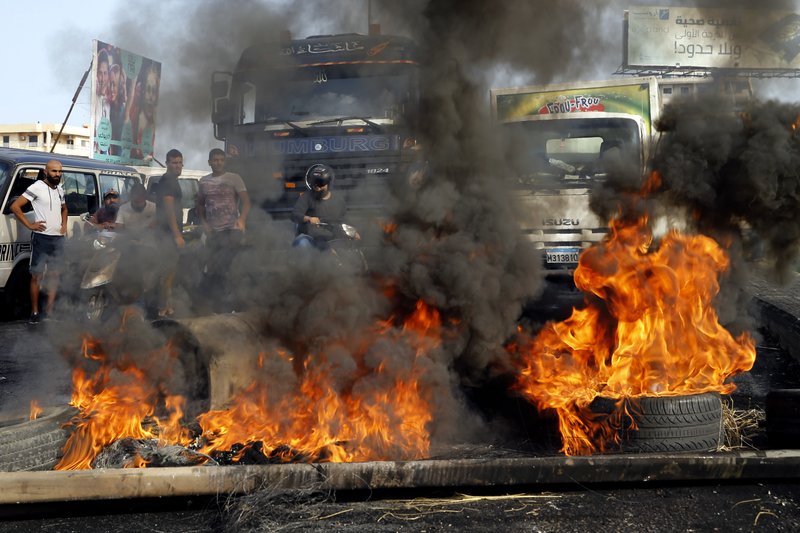
BEIRUT (AP) — Lebanon’s political crisis worsened Sunday with the outgoing prime minister harshly criticizing the party of the country’s president, blaming it for weeks of delay in forming a new Cabinet amid ongoing anti-government protests.
A statement released by Saad Hariri’s office called the policies of President Michel Aoun’s party “irresponsible regarding that national crisis that they country is passing through.” Aoun has yet to call for consultations with parliamentary blocs’ leaders to name a new premier, nearly three weeks after Hariri resigned amid nationwide protests.
Some major factions in Lebanon’s sectarian political system want to keep Hariri in the new government. But they want him to form a cabinet of politicians and technocrats. He’s insisting on only technocrats.
Aoun’s party on Sunday responded that Hariri’s stance intends to dominate the new Cabinet by insisting “its either me or no one else in the government.”
The exchange of blame and criticism between Hariri’s office and the Aoun’s party come as Lebanon is passing through its worst economic and financial crisis in decades. The small Arab country is one of the most heavily indebted countries in the world and was already dealing with a severe fiscal crisis before the protests began, one rooted in years of heavy borrowing and expensive patronage networks run by entrenched political parties.
On Nov. 8, the World Bank urged politicians to form a Cabinet within a week or the country’s economy will face further consequences.
Nationwide demonstrations began on Oct. 17 against new taxes on WhatsApp calls amid a plunging economy. The protesters now are calling for the downfall of the political elite who have run the country since the 1975-90 civil war.
As Hariri’s office and Aoun’s party were blaming each other for the formation of the Cabinet, thousands of protesters gathered in downtown Beirut chanting “The people want to bring down the regime.” The protesters criticized current and former politicians over the country’s dark economic and financial status.
Army Commander Gen. Joseph Aoun toured several areas around the country, visiting troops and vowing to protect the protesters. Aoun said protests in Lebanon have witnessed less violence than other places including Iraq, Iran, Hong Kong, Bolivia and Paris.
“We did not stop anyone who is protesting in squares, but when they want to close roads and harass people we will intervene,” the general said, referring to some activists who closed roads around the country before the army opened them by force.
“How many people are dying in Iraq every day?” the commander. More than 320 Iraqi protesters have been killed by security forces in Iraq since the beginning of October. He said an investigation is underway in the case of a protester killed by a soldier last week in southern Beirut.
The protesters on Sunday also celebrated lawyer Melhem Khalaf’s victory as the new head of the Bar Association. Melhem, an independent who defeated other candidates backed by political parties, became the first independent to head the union in years.
“In the last 20 years, it was in control of the dominant parties and I think the election of Melhem Khalaf is yet another indication that Lebanon is changing,” said Tarek Mitri, a former Cabinet minister who now heads the Issam Fares Institute at the American University of Beirut.
Reporting by BASSEM MRUOE
Image: People queue on their cars as they try to cross a highway blocked by anti-government protesters by burning tires, during ongoing protests against the government, in Khaldeh, south of Beirut, Lebanon, Thursday, Nov. 14. Protesters have been holding demonstrations since Oct. 17 demanding an end to widespread corruption and mismanagement by the political class that has ruled the country for three decades (AP Photo/Bilal Hussein)



